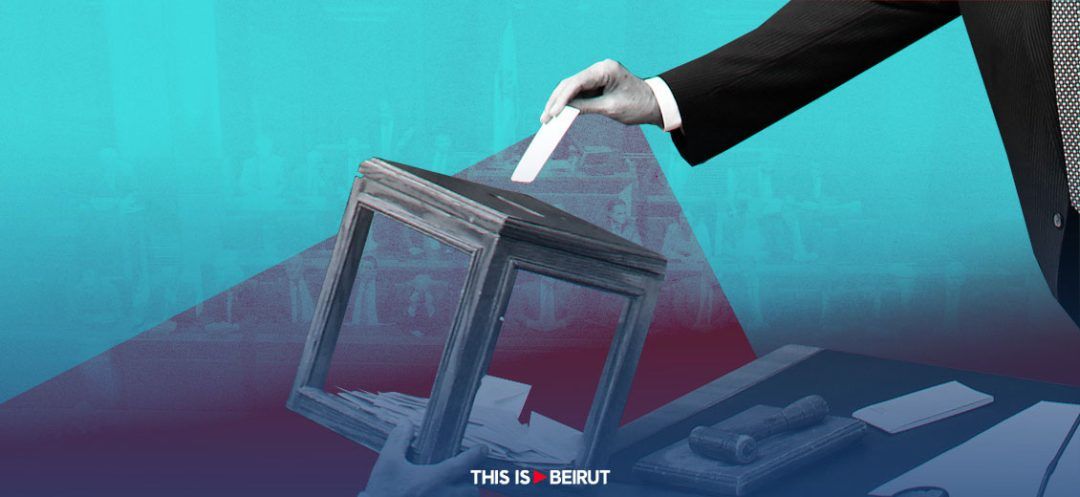
Caretaker Minister of Interior Bassam Mawlawi has set the following dates for the municipal elections: May 12 for Mount Lebanon, May 19 for North Lebanon and Akkar, and finally, May 26 for Beirut, Bekaa, and Baalbeck-Hermel. The door for submitting candidate applications in North Lebanon opened on Monday, but uncertainty still persists about whether these elections will take place or not.
Parliament Speaker Nabih Berri, a Hezbollah ally, is firmly opposed to excluding South Lebanon from the elections, while they are being held in all other Lebanese regions, due to unabating violence and fire exchange between Hezbollah and Israeli forces.
However, for the anti-Hezbollah opposition, there is no justification for postponing the elections, which would still be held in South Lebanon once calm and stability are restored.
Which of the two camps will prevail? The fate of the municipal elections sits in a balance that will be tipped in one way or another in parliament on Thursday. A plenary legislative session is scheduled for April 25 at 11 AM, with two laws of double urgency on the agenda. One pertains to the extension of the mandate of municipal councils and mukhtars until May 31, 2025, at the latest.
It is relatively clear who will vote in favor of a postponement and who will oppose it. The parliamentary blocs of the Kataeb and the Lebanese Forces will maintain their principled position by boycotting the session, as they believe that according to the Constitution, Parliament should not legislate but rather elect a President of the Republic.
However, the LF made an exception when they attended the vote for extending the mandate of the Army Commander-in-Chief (on December 15, 2023).
“Then, it was done out of concern for the country’s national security. We refuse to extend the mandates of municipal councils and mukhtars. Elections must be held within the allotted timeframe," an LF source told This is Beirut.
"Last year, they (the Amal-Hezbollah duo) used the lack of funds as an excuse to postpone the vote, although the funds were available. This year, the pretext for postponement is the war in South Lebanon, even though elections could be held by excluding high-risk areas and organizing a partial vote later," the source added.
According to him, Amal and Hezbollah are pushing for a postponement, because their interests are at stake. "Both parties are against the vote because in certain regions of the South, they will have to compete separately. Moreover, they will have to face off against certain prominent families in the region, as well as representatives of the October 17 revolution. Therefore, to avoid internal discord, they prefer not to go forward with the elections.”
The blocs aligned with Amal and Hezbollah will vote in favor of a postponement, while those close to the opposition, such as the Renewal bloc (Michel Moawad) and the Change Coalition (Mark Daou, Michel Doueihy, and Waddah Sadek), announced their intention to boycott the session, just like the LF and the Kataeb. Other independent MPs are expected to follow suit.
Which camp holds the majority if the quorum is ensured? The answer to this question depends on the parliamentary blocs of the Progressive Socialist Party (PSP) and the Free Patriotic Movement (FPM). The Democratic Gathering bloc, led by PSP chief Teymour Joumblat, has not yet indicated which way it will vote. However, its MPs will be present at the meeting. MP Bilal Abdallah confirmed this to This is Beirut, arguing that the PSP is against the “theory of obstruction,” noting that the bloc attended all previous sessions.
The major uncertainty lies with the FPM bloc, which, like the opposition, is against holding legislative parliamentary meetings in the absence of a president. Its leader, Gebran Bassil, has kept the voting intentions of his bloc in the dark, stating that he wants to ensure that the Ministry of Interior is fully prepared to hold the vote first. Bassil explained that his bloc's decision hinges on Mawlawi’s answers, regarding certain issues that the bloc would like to raise with him.
On Monday, a delegation from the FPM visited Mawlawi, but the final decision will be made at the end of its weekly meeting on Tuesday afternoon.
Some believe that the FPM bloc would align with the Shiite duo’s decision and vote, as in 2023, in favor of a postponement. They also attribute the choice of this vote to the emerging rapprochement between the FPM and Amal, whose relations have been at their lowest for years.
Gebran Bassil visited Jezzine on Sunday and was the guest of Ibrahim Azar, a former Maronite MP close to Nabih Berri. Azar would not have taken this initiative without the Speaker of the House's approval.
During the 2022 parliamentary elections, the FPM ran independently in this region, as did the Amal Movement. Ultimately, the LF ended up winning two out of the three available seats.
This attempt at a rapprochement between the FPM and Amal, possibly in preparation for the 2026 parliamentary elections, could also be a reciprocal gesture made by Bassil in return to Amal’s support of the FPM's candidate, who won the Order of Engineers elections. This tradeoff would involve the participation of the FPM bloc in the April 25 session and a vote in favor of a postponement, which would ultimately benefit the FPM, as it is losing ground in several regions.
The Stakes of the Municipal Elections and the Mukhtars
These elections are important because they play a crucial role in maintaining the continuity of public services in a state where the institutions are paralyzed, the parliament is blocked, and the government is only a caretaker one.
Additionally, they are significant for assessing the political landscape, providing voters with the opportunity to evaluate their position towards different political parties and even local dignitaries. These key figures are worried about being held accountable by voters for the causes and consequences of the current economic crisis.
Read more




Comments